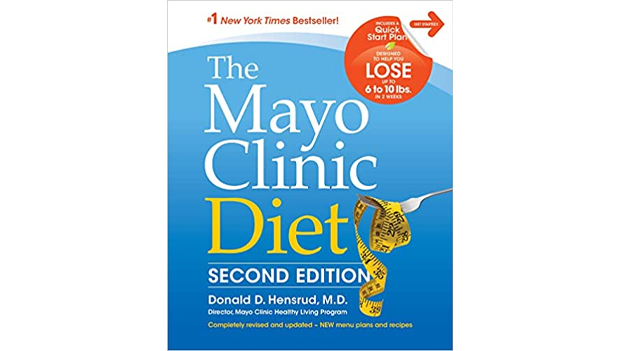
By clicking on the product links in this article, we may receive a commission fee at no cost to you, the reader. Sponsorships and affiliate commissions help support our research so we can help you find the best products. Read the full affiliate disclosure here.
Did you know someone dies of heart disease (1) every 34 seconds in the United States? As the leading cause of death, it's no wonder we are trying to get a handle on this crisis. A change in lifestyle, including supplementation, diet, and heart-health focused exercise, can work to prevent and slow the progression of the disease by reducing risk factors (2) such as obesity, high blood pressure, high cholesterol, and diabetes. There are so many diets out there, it can be hard to tell which are fads and which are truly the best diets for heart health. Because 1 in every 5 deaths is heart disease-related, this topic warrants some serious attention.
The ACTIVE Reviews Team has put together a comprehensive list of the best diets for heart health. We've compared many diets available and narrowed the list to the top 6 options readily available. We will break down each diet and review their pros and cons.
The Best Diets for Heart Health - Our Top Picks
-
Noom
- Vegan Diet with Weight Watchers
- Mediterranean Diet with HelloFresh
- Mayo Clinic Diet
- DASH Diet
- Ornish Diet
Why Trust Us?
ACTIVE.com’s editorial team relies on the knowledge and experience of fitness and wellness experts including competitive athletes, coaches, physical therapists, nutritionists, and certified trainers. This helps us ensure the products we feature are of the highest standard. Collectively, the team has spent countless hours researching equipment, gear, and recovery tools in order to create the most accurate, authentic content for our readers. Customer satisfaction is also a key part of our review process, which is why we only feature products that are highly rated.
Disclaimer: Always make sure to consult with your doctor before starting a new diet. Any weight loss that totals more than 1 pound per week over a long period of time is unusual and should be monitored by a doctor.
Noom

SPECS
- Why this diet is good for heart health: Noom facilitates weight loss which reduces heart disease risk factors such as obesity, diabetes, and high blood pressure.
GET NOOM 14-DAY FREE TRIAL The Noom weight loss app made our list as one of the best diets for heart health. Noom is a company that took diet culture and turned it on its head, then made it available for the general population. It's an actual diet in which you're given directives on specific changes to make immediately. They have a slow and steady approach in which psychology is implemented in order to change the way you think about food in general. Each day you are served a small lesson that is backed by behavioral science and geared toward changing unhealthy patterns.
Their approach allows the participant to experience freedom to decide how active they want to be in the program, something not very common while on a diet. Personalized coaching, support groups, and additional methods of support are available to educate and motivate you. However, it's up to you to decide how much interaction you'd like to partake in. Noom is proven to successfully help people lose weight and thus reduce their risk factors for heart disease.
What We Like
- Personalized coaching
- Support groups
- Freedom to utilize the program as much as possible
- Proven results
What We Don't Like
- Might be cost prohibitive
- Because of their laid-back approach, it may not be the best fit for someone who is not self motivated
BUY: Noom
Vegan Diet with Weight Watchers (WW)
.jpg)
SPECS
- Why this diet is good for heart health: The vegan diet allows for natural weight, blood pressure, and cholesterol reduction, thus reducing the risk of developing heart disease.
GET 50% OFF WEIGHT WATCHERSThe vegan diet made our list of best diets for heart health because of the connection between plant-based diets and improved heart health (3). A vegan diet refers to a diet void of any animal products, such as meat, poultry, fish, eggs, and dairy. As mentioned, this particular diet has proven to significantly reduce risk factors for heart disease. The vegan diet is naturally lower in calories due to the exclusion of calorie dense animal products. For this reason people often lose weight (4) without much effort while following a plant-based diet. This can lower blood pressure and bring weight into a healthy range thus reducing two important risk factors for heart disease.
Additionally, meat, poultry, eggs, and dairy tend to be higher in saturated fat which is known to increase cholesterol. By removing these from the diet, cholesterol naturally comes down. Choosing a plant-based diet takes a big leap from the standard American diet, which can be a difficult transition. However, there are tons of resources and food options available these days. Because the diet is restrictive, it can make social gatherings difficult, leading to frustration and difficulty adhering to it. With their expansive database of plant-based recipes, Weight Watchers (WW) can be a great place to get started while getting the support you need.
What We Like
- Science backed
- Reduces risk factors for heart disease
- Increases vitamin and mineral content in diet due to increased consumption of fruits, vegetables, and legumes
What We Don't Like
- Restrictive
- Might be difficult to transition to long term due to the dramatic difference between it and the standard American diet
BUY: Vegan Diet with Weight Watchers
Mediterranean Diet

SPECS
- Why this diet is good for heart health: The Mediterranean Diet has consistently demonstrated a reduced risk of cardiovascular disease likely due to the maintenance of a healthy weight, decreased inflammation, and improved cholesterol.
CHECK PRICEThe Mediterranean Diet is our next pick for the best diet for heart health. This diet is, as it sounds, based on the native diet of those living in the countries along the Mediterranean Sea. The diet mostly consists of a variety of fruits, vegetables, legumes, nuts and seeds, seafood, some poultry, olive oil, and a moderate amount of red wine. Red meat is largely left out of the diet, although a small amount is acceptable. Studies have demonstrated that when followed, the Mediterranean Diet can reduce the risk of heart disease, cancer, and metabolic disease, while improving insulin sensitivity and inflammatory markers (5).
Long-term adherence to the Mediterranean Diet has shown to decrease the chance of gaining weight and developing abdominal obesity, and decrease blood cholesterol (6). It's important to note that you must stay on the diet to receive the above mentioned benefits. Sticking "mostly" to the diet while regularly eating outside of its framework will result in decreased benefit. Using a meal service like Green Chef that delivers meals following the Mediterranean diet may help if you are struggling with the diet's parameters.
What We Like
- Reduces chance of weight gain and abdominal obesity
- Reduces blood cholesterol and inflammation
- Improves insulin sensitivity
What We Don't Like
- Diet is not geared for significant weight loss, although it might be a side effect
- Diet followed by the individual without further guidance which may cause confusion and some difficulty adhering to it
BUY: Hellofresh
Mayo Clinic Diet

SPECS
- Why this diet is good for heart health: Program is heavily focused on habit change for long-term lifestyle improvement which will reduce heart disease risk factors in the long run.
GET NOOM 14-DAY FREE TRIAL The Mayo Clinic Diet is next on our list of best diets for heart health. This is a membership service in which you pay a small fee to gain access to their program. The diet was created by the experts at the Mayo Clinic using science-based techniques to promote long-term weight loss. The goal of this diet is to create habit change that will sustain over time by replacing less healthy habits with new ones. The Mayo Clinic Diet is a bit more prescriptive than some other options because they provide meal plans and offer a 12-week course to teach you the principles for healthy weight loss.
The program offers a wealth of knowledge. It includes a food tracker, videos by physicians and other experts, and a "habit optimizer," which is intended to help you swap out those unhealthy habits. Although this diet doesn't offer private coaching, you do get access to their private Facebook group as an additional support option. If you like using meal plans, there's a variety of them to choose from. Mayo Clinic was officially started in 1914 and has remained a trusted medical source for over a century.
What We Like
- Focused on habit change
- Food tracker with large database of over 1 million foods
- Expert videos
- Trusted Mayo Clinic brand
What We Don't Like
- Cost may be prohibitive
- Some meal plans available offered, such as keto, gear more toward weight loss and don't align with general heart health guidelines
DASH Diet

SPECS
- Why this diet is good for heart health: The DASH diet reduces blood pressure and weight, two significant risk factors for developing heart disease.
GET NOOM 14-DAY FREE TRIALThe DASH diet is our next best diet for heart health. DASH is an acronym that stands for Dietary Approaches to Stop Hypertension. Developed in 1997 by the National Institute of Health National Heart, Lungs, and Blood Institute as a way to reduce blood pressure. Over the years, it has consistently ranked in the top-tier for best diet overall. The main concept of this diet is to increase the number of fruits, vegetables, whole grains, beans, nuts, and seeds, while reducing the amount of fatty meat, full fat dairy, sugar sweetened beverages, sodium, and additional sweets. The diet is designed to be higher in minerals like potassium, calcium, and magnesium, as these nutrients help to reduce blood pressure.
Studies show that not only does the DASH diet reduce blood pressure in those with and without hypertension, it has been shown to aid in weight loss, diverticular disease, and celiac disease, while reducing the incidence of colorectal cancer and overall mortality. Although this is not a plant-based diet, it certainly is heavy on the fruits and vegetables and light on meats.
What We Like
- Proven reduction in blood pressure as well as other diseases
- Has been shown to reduce the incidence of all cause mortality
- Does not require membership to join
What We Don't Like
- Higher levels of minerals such as potassium may not be appropriate for those with other underlying diseases such as kidney disease
- Diet followed by the individual without further guidance
Ornish Diet

SPECS
- Why this diet is good for heart health: The Ornish diet will allow for weight loss as well as improvement in other risk factors for heart disease, such as high blood pressure, high cholesterol, and diabetes.
GET NOOM 14-DAY FREE TRIALThe Ornish Diet rounds out our list of the best diets for heart health. The Ornish diet is a low fat, vegetarian diet in which nonfat dairy and egg whites are included. The idea is to eat mostly fruits, vegetables, whole grains, and legumes. All processed carbohydrates like flour, sugar, and white rice, as well as high-fat foods, are to be avoided. Caffeine is limited to one cup of coffee or 2 cups of black tea daily.
This diet was created by Dean Ornish, MD, in 1977. Dr. Ornish was a clinical professor of medicine at the University of California at the time. The diet is intended to be a lifestyle rather than solely nutritionally focused. Stress management, exercise, and social support are additional aspects of the lifestyle. The diet has clear benefits and demonstrated improvement in weight, cholesterol, blood pressure, exercise capacity and even psychosocial parameters (7). Being a low fat, vegetarian diet, it is the most restrictive on the list, but the results do speak for themselves.
What We Like
- Reversal in coronary artery disease progression
- Encourages weight loss
- Improves cholesterol and blood pressure, as well as exercise capacity
What We Don't Like
- Most restrictive diet
- Diet followed by individual without further guidance
How Diet Impacts Heart Health
The way we eat plays an integral role in heart health. In fact, an unhealthy diet alone is a risk factor for heart disease (8). The old Hippocrates quote, "let food be thy medicine," may be cliché but is founded in truth—diet can help or hinder heart health.
When we consume meals rich in fruits, vegetables, legumes, and whole grains, we are providing ourselves with fiber, vitamins, and minerals that work synergistically to protect our health and nourish our bodies at a cellular level. When we eat very processed foods laden in salt and saturated fat, we are doing just the opposite.
Foods to Avoid for Heart Health
The science is pretty clear on this. There are definitely certain foods to avoid in large amounts to improve your risk factors for heart disease, and they include:
- Sugar-sweetened beverages
- Processed foods low in fiber
- Processed foods high in salt, fat, or sugar
- Red meat
- Excess sugar
- High amounts of saturated fat and trans fats
As a dietitian, I like to encourage my clients to enjoy all things in moderation (except for trans fats. Really, avoid them). It's OK to have sweets here and there, but you'll find improved health benefits if you ditch your regular soda habit. See what I mean?
How to Choose the Best Diet for Heart Health
Choosing the best diet for heart health can be overwhelming, but it's worth the effort to find one that fits well into your life. Focusing on your heart disease risk factors (obesity, high cholesterol, high blood pressure, diabetes) can help point you in the right direction. For example, if you want to bring down your blood pressure, you might consider the DASH diet as it was literally invented to do just that.
Your risk factors can help you narrow your diet options. From there, take a look at each diet to determine which one fits best into your lifestyle. If giving up meat, dairy, and eggs seems too far-fetched, cross it off your list. The idea is to find a diet that isn't so much a "diet," but instead, a new way of eating and looking at food. Decreasing risk factors leading to heart disease is not a temporary thing or quick fix, it's a forever thing. So find something that you can settle into and maybe even modify over time to make your own.
FAQs About Diets for Heart Health
What diet do cardiologists recommend?
These days, many cardiologists attempt a shared approach to diet recommendations based on the patient's lifestyle, limitations, and interests. In general the DASH diet, Mediterranean diet, and vegetarian diets are the most supported by science to improve heart health and aid in weight loss (9).
What foods can help you repair your heart?
Although complete reversal of heart disease is unlikely, effects can be lessened. This is most dramatically seen with a vegetarian or vegan lifestyle.
Which drink is best for the heart?
A few drinks have been standouts in preventing heart disease including:
- Red wine due to the powerful antioxidant, resveratrol (10)
- Green and black teas for their flavanols and polyphenols (11, 12)
- Coffee because of chlorogenic acid, lignans, and phytochemicals (13)
However, it's important to note that more is not better. Too much of some of these could have deleterious effects. As with most things in life, moderation is key. Avoid adding sugar, and don't forget to drink water.
Is peanut butter heart healthy?
Peanut butter, in moderate amounts, has been shown to decrease triglycerides and improve cholesterol levels (14). It is important to remember that peanuts and peanut butter are higher in calories, so be sure to pay attention to serving size recommendations.
References
- https://www.cdc.gov/heartdisease/facts.htm
- Rosiek, A., & Leksowski, K. (2016). The risk factors and prevention of cardiovascular disease: the importance of electrocardiogram in the diagnosis and treatment of acute coronary syndrome. Therapeutics and clinical risk management, 12, 1223.
- Satija, A., & Hu, F. B. (2018). Plant-based diets and cardiovascular health. Trends in cardiovascular medicine, 28(7), 437-441.
- Ivanova, S., Delattre, C., Karcheva-Bahchevanska, D., Benbasat, N., Nalbantova, V., & Ivanov, K. (2021). Plant-Based Diet as a Strategy for Weight Control. Foods, 10(12), 3052.
- Schwingshackl, L., Morze, J., & Hoffmann, G. (2020). Mediterranean diet and health status: Active ingredients and pharmacological mechanisms. British journal of pharmacology, 177(6), 1241-1257.
- Agnoli, C., Sieri, S., Ricceri, F., Giraudo, M. T., Masala, G., Assedi, M., ... & Krogh, V. (2018). Adherence to a Mediterranean diet and long-term changes in weight and waist circumference in the EPIC-Italy cohort. Nutrition & diabetes, 8(1), 1-10.
- Koertge, J., Weidner, G., Elliott-Eller, M., Scherwitz, L., Merritt-Worden, T. A., Marlin, R., ... & Ornish, D. (2003). Improvement in medical risk factors and quality of life in women and men with coronary artery disease in the Multicenter Lifestyle Demonstration Project. The American journal of cardiology, 91(11), 1316-1322.
- Rosiek, A., & Leksowski, K. (2016). The risk factors and prevention of cardiovascular disease: the importance of electrocardiogram in the diagnosis and treatment of acute coronary syndrome. Therapeutics and clinical risk management, 12, 1223.
- Pallazola, V. A., Davis, D. M., Whelton, S. P., Cardoso, R., Latina, J. M., Michos, E. D., ... & Welty, F. K. (2019). A clinician's guide to healthy eating for cardiovascular disease prevention. Mayo Clinic Proceedings: Innovations, Quality & Outcomes, 3(3), 251-267.
- Castaldo, L., Narváez, A., Izzo, L., Graziani, G., Gaspari, A., Di Minno, G., & Ritieni, A. (2019). Red wine consumption and cardiovascular health. Molecules, 24(19), 3626.
- Velayutham, P., Babu, A., & Liu, D. (2008). Green tea catechins and cardiovascular health: an update. Current medicinal chemistry, 15(18), 1840.
- Deka, A., & Vita, J. A. (2011). Tea and cardiovascular disease. Pharmacological research, 64(2), 136-145.
- Yu, E., Malik, V. S., & Hu, F. B. (2018). Cardiovascular disease prevention by diet modification: JACC health promotion series. Journal of the American College of Cardiology, 72(8), 914-926.
- Parilli-Moser, I., Hurtado-Barroso, S., Guasch-Ferré, M., & Lamuela-Raventós, R. M. (2022). Effect of Peanut Consumption on Cardiovascular Risk Factors: A Randomized Clinical Trial and Meta-Analysis. Frontiers in nutrition, 9.
About the Author

Byree is a registered dietitian with a Master of Science in Dietetics and Nutrition. Bryee is fascinated by food science and biochemistry but also enjoys simple recipe creations as she loves breaking down evidence-based info into digestible guides.







Discuss This Article